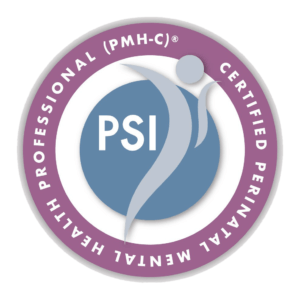
Everyone experiences anxiety at one point or another. Whether it is a job interview, a medical test, or a difficult conversation, anxious feelings are a common response. However, when these feelings become chronic, it can indicate an anxiety disorder.
Understanding the symptoms and triggers of anxiety is the first step toward managing this condition. In this article, we will delve into the common symptoms of anxiety and the potential stressors that can provoke these symptoms.
Understanding Anxiety and Its Symptoms
Anxiety disorders are a group of mental health conditions characterized by excessive, persistent worry and fear about everyday situations. They have many types, each with its own unique characteristics.
Common types of anxiety disorder are:
- Generalized Anxiety Disorder (GAD): This is characterized by chronic anxiety, exaggerated worry and tension, even when there is little or nothing to provoke it.
- Social Anxiety Disorder: Also known as social phobia, it involves high levels of anxiety, fear, and avoidance of social situations due to feelings of embarrassment, self- consciousness, and concern about being judged or viewed negatively by others.
- Specific Phobias: These are intense fears of a specific object or situation, such as heights or flying. The fear goes beyond what is normal and may cause individuals to avoid ordinary situations.
- Separation Anxiety Disorder: Characterized by high levels of anxiety when separated from a place or person that provides feelings of security or safety.
- Panic Disorder: People with this condition have feelings of intense fear or terror that strike suddenly and repeatedly without warning, also known as panic attacks.
Anxiety, regardless of its type, manifests in several physical and emotional symptoms. These symptoms can significantly interfere with a person’s daily life and overall well-being.
The following are some of the most common symptoms experienced by those suffering from anxiety:
- Feeling nervous, restless, or tense: This is often one of the first symptoms of anxiety. It is a persistent and overwhelming sense of unease that can be hard to shake off.
- A sense of impending danger, panic, or doom: Those with anxiety often feel as though something bad is about to happen, which can lead to feelings of panic or fear.
- Increased heart rate: Anxiety can cause physical symptoms like a faster heartbeat, which can feel like your heart is racing or pounding.
- Rapid breathing (hyperventilation): This is another physical symptom where you might find yourself breathing quickly or struggling to catch your breath.
- Sweating: Anxiety can also cause you to sweat excessively, even if you are not exerting yourself physically.
- Trembling: This involuntary shaking or trembling can be a sign of anxiety, often occurring during moments of intense anxiety or panic attacks.
- Feeling weak or tired: Anxiety can be mentally and physically exhausting, leading to feelings of fatigue or weakness.
- Trouble concentrating or thinking about anything other than the present worry: Those with anxiety often struggle with intrusive thoughts about their worries, making it difficult to focus on anything else.
- Trouble sleeping: Anxiety can lead to insomnia, with worries or fears keeping you awake at night.
- Gastrointestinal (GI) problems: Anxiety can also have an impact on your digestive system, leading to problems like stomachache, diarrhea, or nausea.
- Difficulty controlling worry: If you have anxiety, you might find it nearly impossible to stop worrying about different aspects of your life.
- The urge to avoid things that trigger anxiety: Those with anxiety often feel an intense desire to avoid situations, places, or people that trigger their anxiety symptoms.
Common Stressors That Trigger Anxiety
Stressors, or triggers, for anxiety are varied and diverse. They can be anything from personal health issues, financial problems, work difficulties, or relationship troubles to phobias or traumatic events. Here are some common stressors:
Environmental Stressors
Environmental stressors are circumstances or events in your surroundings that cause you stress and anxiety. Here are some examples:
- Work-related stress: High-pressure jobs, poor workplace relationships, job insecurity, or an excessive workload can all contribute to anxiety. This can affect not only your work performance but also your personal life and overall well-being.
- Financial stress: Debt, the cost of living, financial losses, or general economic uncertainty can lead to significant anxiety. The constant worry about money can be a persistent source of stress.
- Relationship conflicts: Disputes with a partner, family member, friend, or colleague can trigger anxiety disorder. This could involve communication problems, trust issues, or just general tension in the relationship.
- Major life changes: Events like moving to a new place, getting married, having a baby, or switching jobs are significant adjustments that can induce anxiety. Even positive changes can be stressful and provoke anxiety.
Biological Factors
Biological factors refer to the physical aspects of our body that might contribute to anxiety. These can include:
- Family history: Genetics can play a role in anxiety disorders. If you have close relatives with anxiety disorders, you may be more susceptible to developing anxiety.
- Hormonal imbalances: Hormones regulate various functions in our body, and any imbalance can impact our mental health. For example, changes in estrogen and progesterone levels in women can contribute to anxiety.
- Medical conditions: Certain medical conditions such as heart disease, diabetes, or thyroid disorders can trigger symptoms of anxiety. It’s important to have a comprehensive medical evaluation to rule out or address these conditions.
Psychological Factors
Psychological factors are mental or emotional aspects that can contribute to anxiety. These include:
- Thinking patterns: Negative or distorted thinking patterns, such as catastrophizing (expecting the worst) or perfectionism, can lead to anxiety.
- Past experiences: Traumatic or stressful events from the past can cause anxiety. This includes experiences such as abuse, neglect, or other forms of trauma.
- Mental health disorders: Anxiety often co-occurs with other mental health disorders like depression, obsessive-compulsive disorder (OCD), or post-traumatic stress disorder (PTSD).
Anxiety Symptoms and Their Treatment in Phoenix, AZ
Anxiety is not an easy condition to live with, and the symptoms can be overwhelming and cause significant distress. However, understanding the different types of anxiety symptoms and the various stressors that trigger them is the first step to managing and overcoming anxiety.
If you have any of these symptoms of anxiety, seek professional help and support from our highly trained and skilled mental health therapist here at My Buoyant Health. We perform comprehensive psychiatric evaluations to determine the root cause of an individual’s anxiety disorder and develop a personalized treatment plan which may consist of medications, psychotherapy, counseling, and much more.
For more information or to make an appointment with us, call today at (602) 510-6582 or request an appointment directly. We look forward to serving you!




